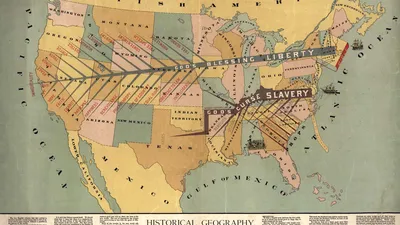Marxist lens

Marxist Lens in AP European History (3.4)
Introduction
In AP European History, the Marxist lens offers a critical framework for analyzing historical and social phenomena through the ideas of Karl Marx. This perspective emphasizes the roles of class struggle, economic power, and social inequality in shaping societal structures and relationships. By understanding the Marxist lens, students can gain deeper insights into how economic forces influence historical developments and advocate for social change.
Defining the Marxist Lens
The Marxist lens is an analytical framework that interprets historical and social phenomena through the concepts developed by Karl Marx. It focuses on the dynamics of class struggle, economic power, and social inequality, emphasizing how these elements drive societal changes and historical developments. This perspective critiques capitalist structures, highlighting their inherent contradictions and the resultant conflicts between different social classes.
Key Characteristics of the Marxist Lens
- Class Struggle: Central to the Marxist lens is the idea that history is driven by conflicts between different social classes, primarily the bourgeoisie (capitalists) and the proletariat (workers).
- Economic Determinism: Emphasizes that economic factors are the primary drivers of social and political structures.
- Critique of Capitalism: Analyzes the exploitative nature of capitalist systems, where the bourgeoisie benefits at the expense of the proletariat.
- Historical Materialism: Views material conditions and economic activities as the foundation upon which societal structures and ideologies are built.
- Advocacy for Social Change: Suggests that systemic inequalities can be overcome through revolution and the establishment of a classless society.
Understanding the Marxist lens allows students to critically assess historical events, movements, and ideologies by examining the underlying economic and class dynamics.
5 Must-Know Facts for Your Next Test
- Origins of the Marxist Lens:
- The Marxist lens emerged as a response to the social and economic upheavals of the Industrial Revolution, highlighting how capitalism fosters inequality and exploitation.
- Class Struggle as a Historical Driver:
- Central to Marxist theory is the concept of class struggle, where the conflict between the bourgeoisie and the proletariat propels historical change.
- Economic Interests and Political Decisions:
- Applying the Marxist lens allows scholars to analyze how economic interests of the ruling class influence political decisions and shape societal outcomes.
- Critique of Dominant Ideologies:
- The Marxist perspective challenges dominant capitalist ideologies, arguing that they perpetuate social inequalities and serve the interests of the ruling class.
- Influence on Social Movements:
- Marxist analysis has significantly influenced various social movements, including labor rights, anti-colonial struggles, and critiques of imperialism throughout history.
Review Questions
1. How does the Marxist lens help explain intellectual developments from 1815-1914?
Answer:
The Marxist lens offers insights into the significant intellectual developments during this period by emphasizing class struggle and economic power dynamics. The rise of socialist thought in reaction to industrial capitalism can be analyzed through this perspective, as thinkers like Marx critiqued the inequalities created by capitalism. By focusing on class relations, the lens helps reveal how economic forces influenced new ideologies, shaping political movements and philosophical discussions.
2. Discuss how applying a Marxist lens can provide a deeper understanding of continuity and changes during the Age of Global Conflict.
Answer:
Applying a Marxist lens to the Age of Global Conflict allows for a deeper understanding of how economic interests underpinned global tensions. It highlights how imperial powers exploited colonies for resources while also addressing class struggles within these nations. The lens reveals how economic disparities contributed to both World Wars and shaped revolutionary movements aiming for social justice, emphasizing that class conflict was a central feature driving political changes during this era.
3. Evaluate the impact of the Versailles Conference through a Marxist lens and its implications for post-war Europe.
Answer:
When evaluating the Versailles Conference through a Marxist lens, one can see how economic interests influenced the terms imposed on Germany. The harsh reparations demanded were rooted in capitalist competition and aimed at maintaining capitalist dominance in Europe. This created socioeconomic instability in Germany, contributing to resentment among the working class and laying fertile ground for extremist movements. The implications were far-reaching, as they not only destabilized Germany but also fueled revolutionary sentiments across Europe, demonstrating how economic decisions at Versailles had lasting effects on social structures.
Related Terms
Class Struggle
The ongoing conflict between different classes in society, particularly between the bourgeoisie (capitalists) and the proletariat (workers), as described by Marx. This struggle is viewed as the driving force behind historical changes and societal transformations.
Dialectical Materialism
A philosophical approach that combines dialectics, which is the study of contradictions, with materialism, emphasizing the importance of material conditions in shaping society. It posits that societal progress occurs through the resolution of class contradictions.
Alienation
A condition in which individuals become disconnected from their labor, products, and fellow workers, often resulting from capitalist modes of production. Alienation leads to feelings of powerlessness, meaninglessness, and isolation among workers.
Practice Questions for Further Learning
- Explain how the Industrial Revolution influenced the development of the Marxist lens.
- Analyze the role of the bourgeoisie and the proletariat in Marxist theory.
- Discuss how Marxist theory can be applied to understand the causes of World War I.
- Evaluate the effectiveness of Marxist analysis in interpreting the Russian Revolution of 1917.
- Compare Marxist and liberal perspectives on economic inequality.
- How does dialectical materialism differ from idealist philosophies in understanding historical change?
- Assess the impact of capitalist economic structures on social relationships according to Marxist theory.
- Describe the concept of alienation and its relevance to modern labor conditions.
- Explain how the Marxist lens can be used to critique contemporary capitalist societies.
- Discuss the influence of Marxist thought on 20th-century social movements.
- How does the Marxist lens interpret the rise of nationalism in Europe?
- Compare the Marxist lens with the Weberian lens in analyzing social stratification.
- What are the limitations of using the Marxist lens in historical analysis?
- Analyze the role of ideology in maintaining capitalist dominance from a Marxist perspective.
- How did Marxist theory influence post-World War II European political systems?
- Discuss the relevance of Marxist theory in understanding globalization.
- Explain how Marxist analysis can shed light on the economic causes of social revolutions.
- Evaluate the impact of Marxist thought on academic disciplines outside of history.
- How does the concept of class consciousness fit into Marxist theory?
- Discuss the legacy of Marxist theory in contemporary European politics.
Frequently Asked Questions (FAQs)
1. What is the Marxist lens?
Answer:
The Marxist lens is an analytical framework that interprets historical and social phenomena through the ideas of Karl Marx, focusing on the roles of class struggle, economic power, and social inequality. It emphasizes how economic forces shape societal structures and relationships, advocating for the understanding of historical developments as a result of class conflict and capitalism’s inherent contradictions.
2. How did the Industrial Revolution contribute to the emergence of the Marxist lens?
Answer:
The Industrial Revolution brought significant social and economic changes, including the rise of industrial capitalism, the growth of the working class (proletariat), and increased economic inequality. These changes highlighted the exploitative nature of capitalist systems, prompting Karl Marx and others to develop theories that critiqued capitalism and emphasized the importance of class struggle. The Marxist lens emerged as a tool to analyze and understand these transformations and their impact on society.
3. What is class struggle in Marxist theory?
Answer:
In Marxist theory, class struggle refers to the ongoing conflict between different classes in society, primarily the bourgeoisie (capitalists who own the means of production) and the proletariat (workers who sell their labor). This struggle is seen as the driving force behind historical change, leading to shifts in economic and political power structures.
4. How does the Marxist lens differ from other analytical lenses in history?
Answer:
The Marxist lens focuses primarily on economic factors and class relations as the main drivers of historical change. Unlike other lenses, such as the Weberian (which emphasizes social status and power) or the feminist lens (which focuses on gender relations), the Marxist lens centers on material conditions and economic exploitation as key to understanding societal developments.
5. Can the Marxist lens be applied to modern societies?
Answer:
Yes, the Marxist lens can be applied to analyze contemporary societies by examining issues like income inequality, labor rights, capitalist exploitation, and the dynamics of class conflict. It provides a framework for critiquing the current economic systems and understanding ongoing social and political movements advocating for economic justice and equality.
References
- Karl Marx & Friedrich Engels. The Communist Manifesto.
- Marx, Karl. Capital: Critique of Political Economy.
- Britannica – Marxism
- Stanford Encyclopedia of Philosophy – Marxism
- History.com – Karl Marx
- The Marxist Theory of History
- Purdue University – Marxist Theory
- Council on Foreign Relations – Marxist Analysis
- Oxford Academic – Marxist Perspective
- Pew Research Center – Class Struggle Today
- The Guardian – Marxist Lens in Modern Analysis
- AP European History Textbook
- Internet Encyclopedia of Philosophy – Marxism
- Harvard Kennedy School – Marxist Analysis
- Social Science Research Network – Marxist Studies
- The Marxists.org Archive
- Khan Academy – Karl Marx and Marxist Theory
- Brookings Institution – Marxist Perspective
- YouTube – Introduction to Marxist Theory
- WorldCat – Marxist Literature
Recent Posts
- Geometry Regents Score Calculator (2025 NY Exam Tool)
- Algebra 2 Regents Score Calculator (2025 NY Exam Tool)
- Algebra 1 Regents Score Calculator (NY Regents Estimator)
- PreACT® Score Calculator (2025 Raw-to-Scaled Estimator)
- ACT® Score Calculator (2025 Raw-to-Scaled Score Tool)
- PSAT® Score Calculator (2025 Digital Exam Estimator Tool)
- AP® Music Theory Score Calculator (2025 Exam Estimator)
- AP® Art History Score Calculator (2025 Exam Estimator)
- AP® Spanish Literature Score Calculator (2025 Exam Tool)
- AP® Spanish Language Score Calculator (2025 Exam Tool)
- AP® Latin Score Calculator (2025 Exam Scoring Tool)
- AP® German Language Score Calculator (2025 Exam Tool)
- AP® French Language Score Calculator (2025 Exam Tool)
- AP® English Literature Score Calculator (2025 Exam Tool)
- AP® English Language Score Calculator (2025 Exam Tool)
Choose Topic
- ACT (17)
- AP (20)
- AP Art and Design (5)
- AP Chemistry (1)
- AP Physics 1 (1)
- AP Psychology (2025) (1)
- AP Score Calculators (35)
- AQA (5)
- Artificial intelligence (AI) (2)
- Banking and Finance (6)
- Biology (13)
- Business Ideas (68)
- Calculator (73)
- ChatGPT (1)
- Chemistry (3)
- Colleges Rankings (48)
- Computer Science (4)
- Conversion Tools (137)
- Cosmetic Procedures (50)
- Cryptocurrency (49)
- Digital SAT (3)
- Disease (393)
- Edexcel (4)
- English (1)
- Environmental Science (2)
- Etiology (7)
- Exam Updates (7)
- Finance (129)
- Fitness & Wellness (164)
- Free Learning Resources (208)
- GCSE (1)
- General Guides (40)
- Health (107)
- History and Social Sciences (152)
- IB (9)
- IGCSE (1)
- Image Converters (3)
- IMF (10)
- Math (44)
- Mental Health (58)
- News (9)
- OCR (1)
- Past Papers (450)
- Physics (5)
- Research Study (6)
- SAT (39)
- Schools (3)
- Sciences (1)
- Short Notes (5)
- Study Guides (28)
- Syllabus (19)
- Tools (1)
- Tutoring (1)
- What is? (312)
Recent Comments

4.2 Political Processes: Understanding the Shifts in Political Boundaries and Power Dynamics

4.4 Defining Political Boundaries

Geometry Regents Score Calculator (2025 NY Exam Tool)

Algebra 2 Regents Score Calculator (2025 NY Exam Tool)

Algebra 1 Regents Score Calculator (NY Regents Estimator)


